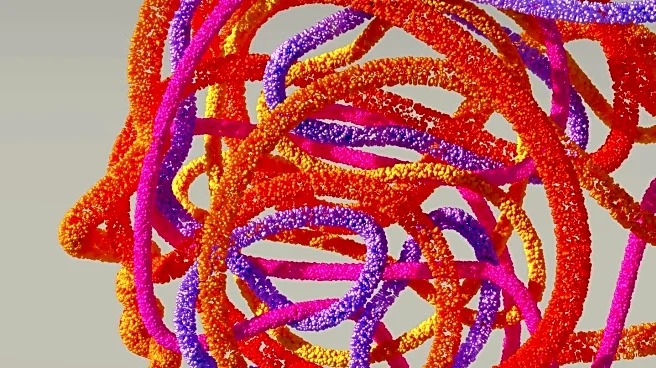What is the story about?
What's Happening?
Recent research has identified the long non-coding RNA SLC7A11-AS1 as a significant factor in the progression of pancreatic ductal adenocarcinoma (PDAC). The study reveals that SLC7A11-AS1 enhances activin A-induced Smad2/3 phosphorylation, promoting cancer stemness and chemoresistance. This RNA interacts with the scaffold protein RSL1D1, disrupting PPM1A myristoylation and prolonging activin A/Smad signaling. The overexpression of SLC7A11-AS1 and activin A correlates with shorter survival periods in pancreatic cancer patients. Targeting SLC7A11-AS1 and activin A may offer new therapeutic strategies to overcome resistance to gemcitabine, a common chemotherapy drug for PDAC.
Why It's Important?
The discovery of SLC7A11-AS1's role in pancreatic cancer progression is crucial as it opens new avenues for therapeutic intervention. Pancreatic cancer is notoriously difficult to treat, with high mortality rates and limited treatment options. By understanding the molecular mechanisms that contribute to chemoresistance, researchers can develop targeted therapies that improve patient outcomes. This research highlights the potential of targeting specific RNA molecules to disrupt cancer progression pathways, offering hope for more effective treatments. The findings could lead to the development of novel drugs that specifically inhibit SLC7A11-AS1, potentially improving survival rates for pancreatic cancer patients.
What's Next?
Further research is needed to explore the therapeutic potential of targeting SLC7A11-AS1 and activin A in clinical settings. Clinical trials may be initiated to test the efficacy of new drugs designed to inhibit these targets. Additionally, researchers will likely investigate the broader implications of SLC7A11-AS1 in other cancer types, potentially expanding the scope of this therapeutic approach. Collaboration between research institutions and pharmaceutical companies will be essential to accelerate the development and testing of these new treatments.














